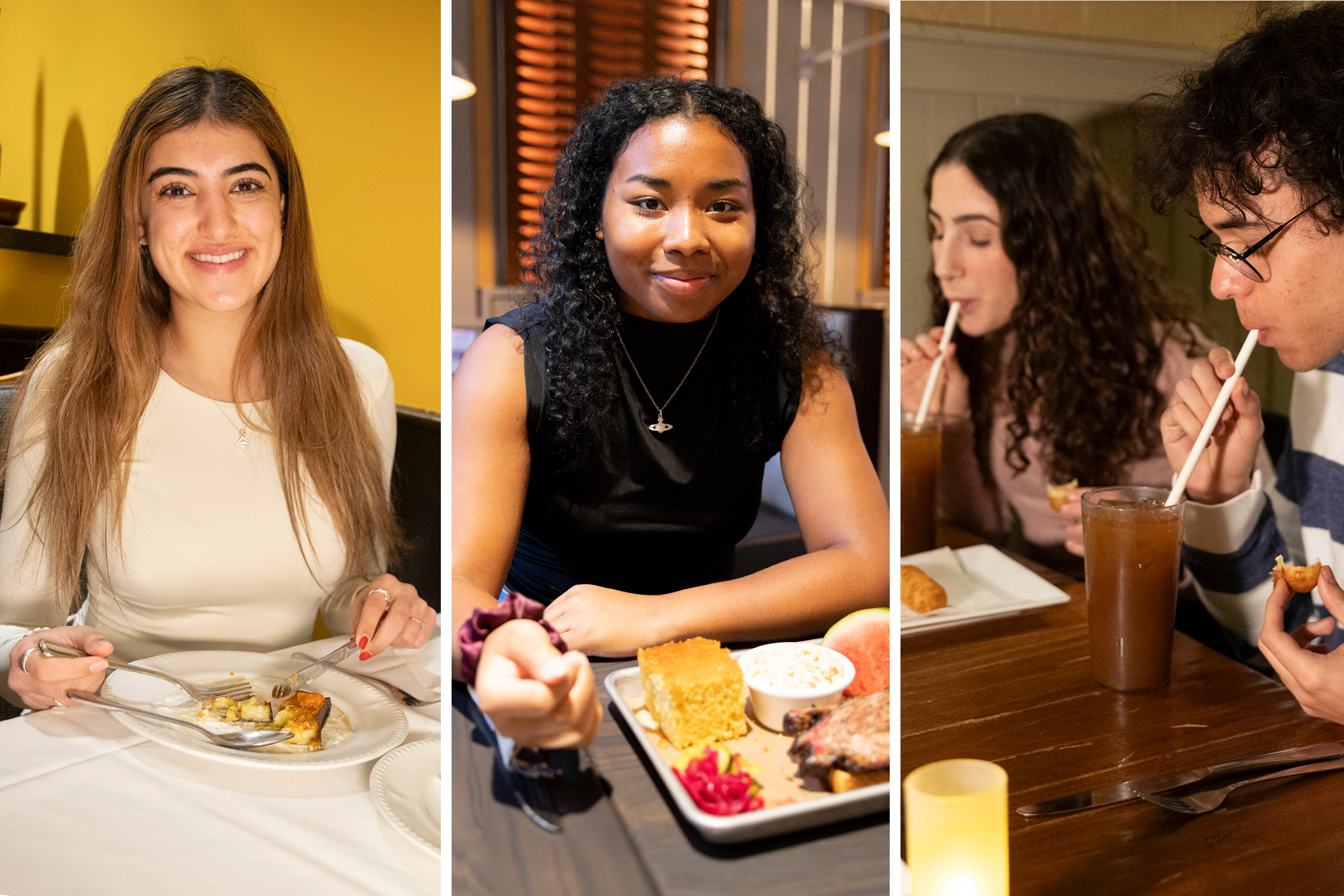
Students Thamina Noorzai (from left), Denver Tolson, Valeria Barriobero, and Ricardo Fernandes Garcia dine at local restaurants that remind them of home.
Photos by Niles Singer/Harvard Staff Photographer
Not Dad’s brisket, but close enough
For students craving a taste of home, local restaurants deliver
Starting college can be exhilarating, but also challenging for homesick students craving connections to their culture. Some Harvard students are finding comfort in local restaurants that offer a taste of home.
“I was missing my family, my friends, and, of course, my culture and food,” said Valeria Barriobero ’25 about the move from Miami to the Cambridge campus.
Then Barriobero discovered Orinoco, a Venezuelan restaurant in Harvard Square named after one of the longest rivers in South America: “It really feels like a little piece of home is with me every time I’m here.”
Fellow Floridian Ricardo Fernandes Garcia ’27 joined Barriobero recently at the restaurant. He and Barriobero raved about Orinoco’s arepas, grilled corn flour buns filled with a variety of meats, vegetables, and cheeses. Both students have Venezuelan ties — Fernandes was born in the capital of Caracas, and Barriobero’s parents emigrated from the city of Maracaibo.
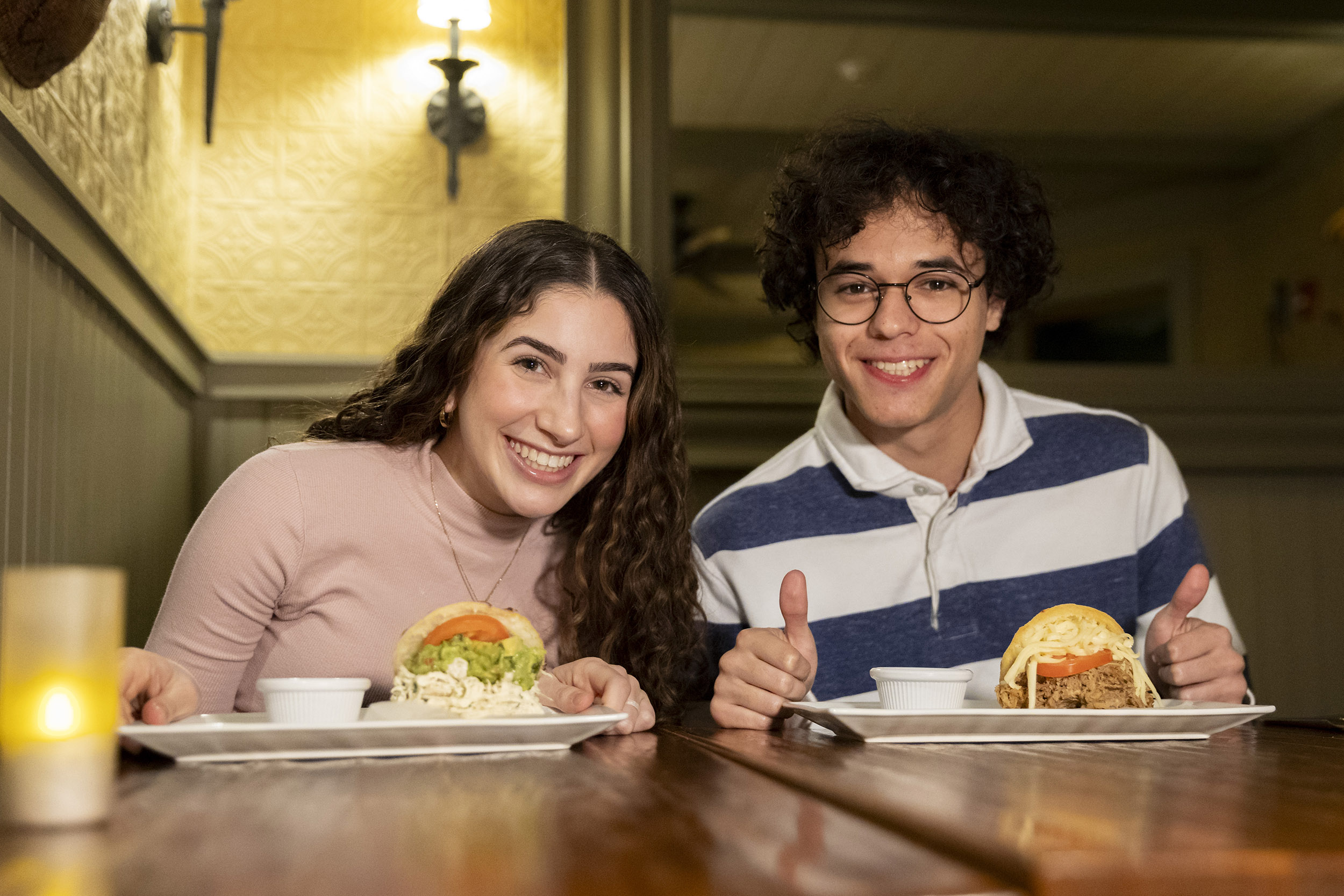
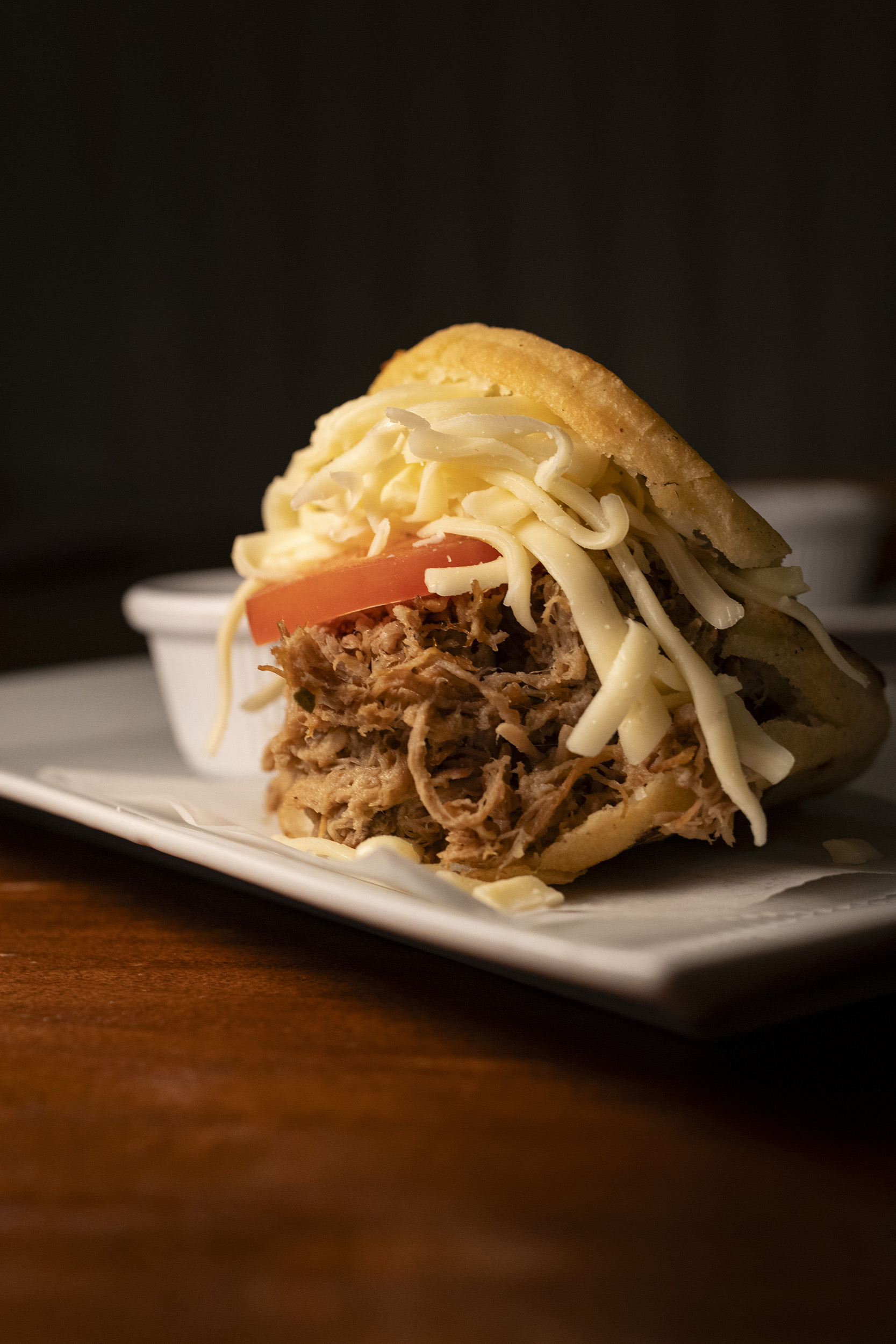

Pork arepas and papelón con limón.
Fernandes ordered arepas de pernil, or pork: “I can’t express my love for it enough.” After all, the food is tied up in his family history — his paternal grandparents emigrated to Venezuela from Portugal and his grandfather worked at an arepera making the delicacy despite not knowing much Spanish or Venezuelan culture.
Barriobero opted for the reina pepiada, an arepa filled with chicken salad, tomato, and mashed avocado. They also shared tequeños, which are made of Guyanese cheese wrapped in dough, with papelón, a lemonade made with panela (raw hardened sugar cane juice).
“It’s so nice having so close to campus a place that reminds me of my home and my family,” said Fernandes. “It’s even cooler because there’s not that many Venezuelan people on campus, so I get to share my culture with all my friends.”
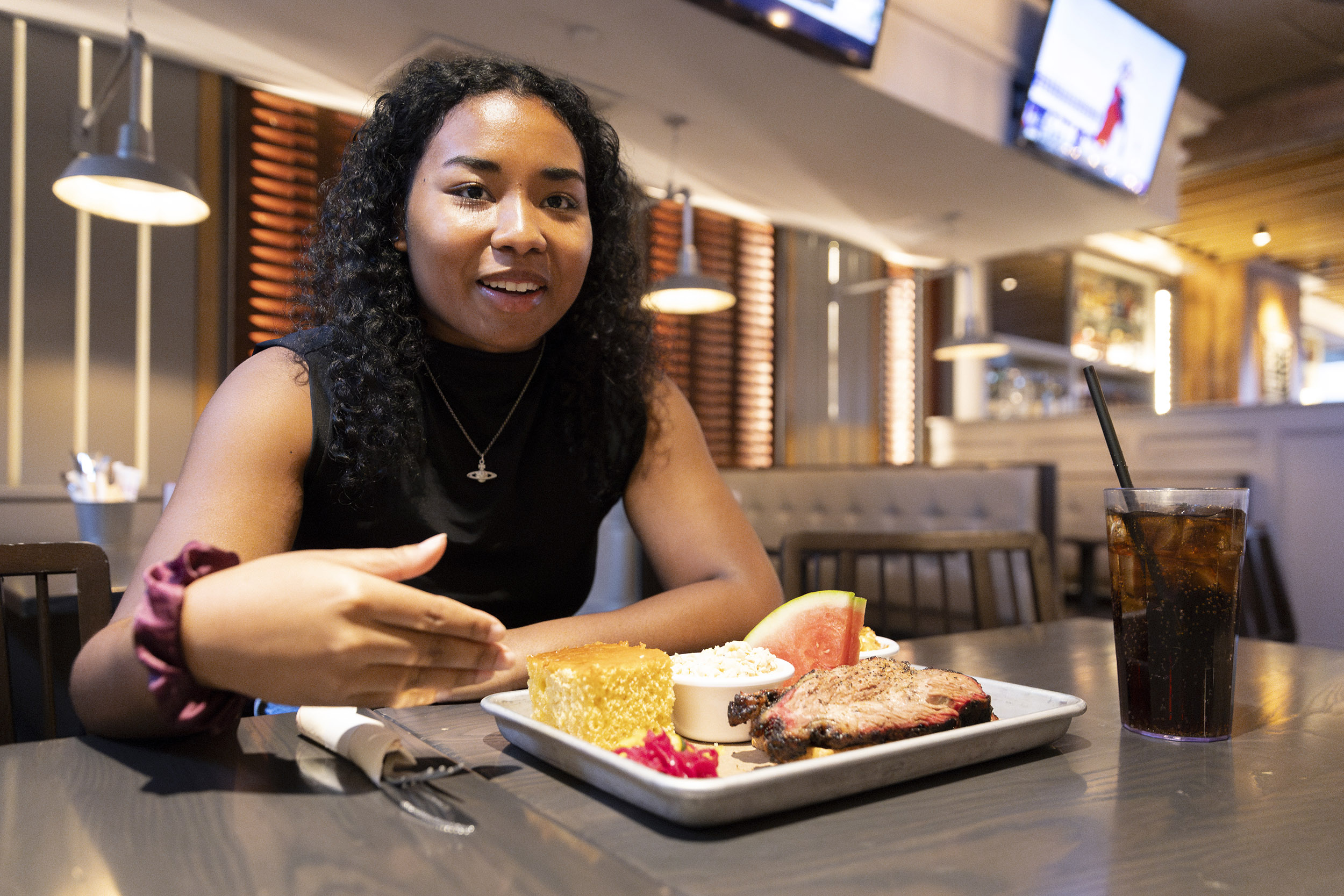
‘There’s a background of oppression and a background of freedom in Southern foods’
A few blocks away, Denver Tolson ’26 gets her own taste of home at The Smoke Shop BBQ. The Duluth, Georgia, native was raised on her dad’s “mean” brisket. “I think this restaurant is a little more Texas than Georgia, but for sure it is Southern foods, Southern styles, Southern feeling,” she said.
Tolson continued: “My family is sort of big on soul food and barbecue. You’ve got barbecue, different cuts of meat, different barbecue sauces all across the South, but the sides are truly the staples.” At the Smoke Shop, Tolson orders the Texas-style brisket with the pimento mac and cheese and cornbread.
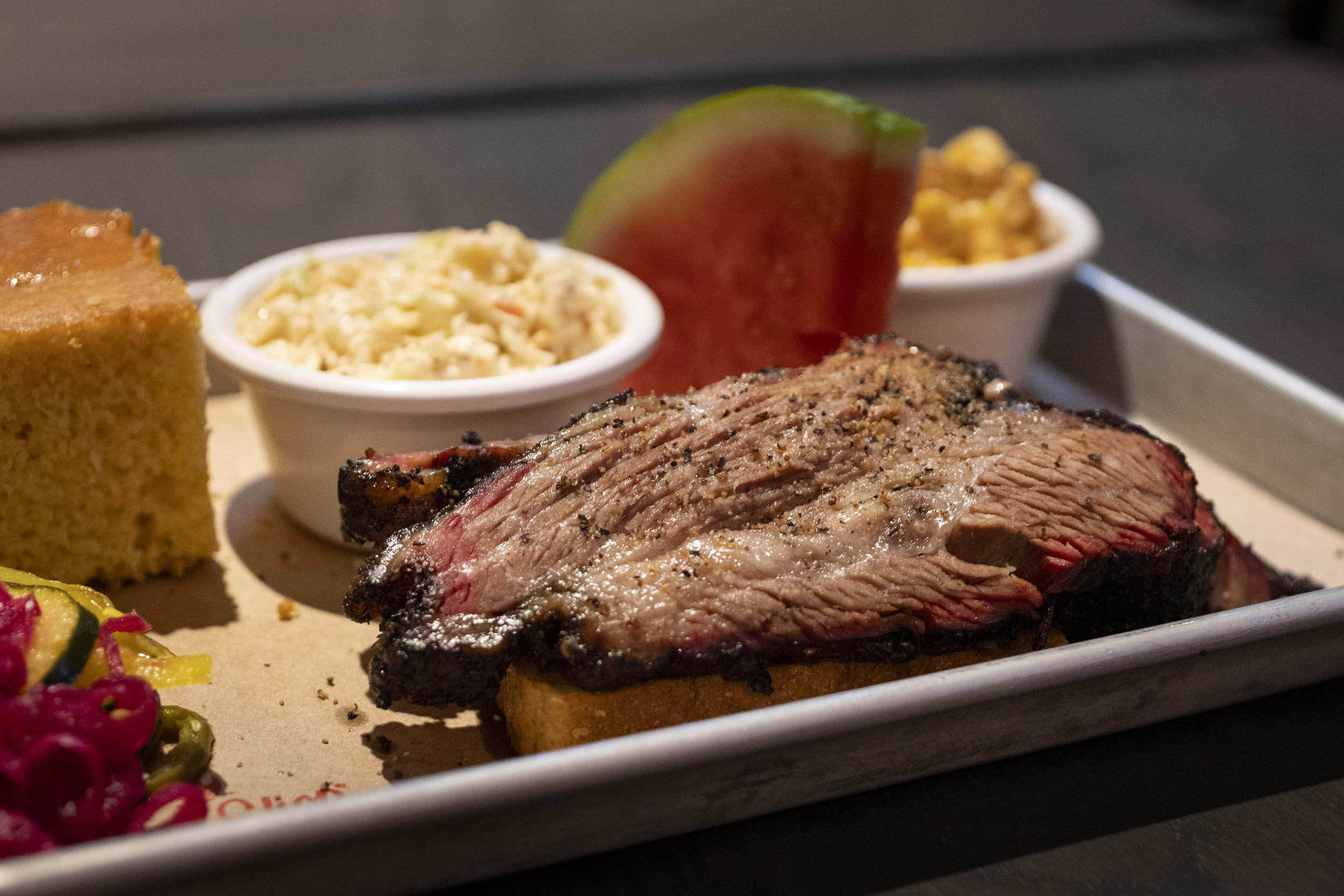
Tolson, a goalie on the women’s soccer team, has brought her teammates to the Harvard Square eatery when she’s craving Southern cooking, which she loves as much for the deep history and culture as the taste.
“America does have specific cultural foods, and it’s evident in the South,” the Dunster House resident said. “There’s a background of oppression and a background of freedom in Southern foods, and sometimes American cuisine doesn’t get the recognition it deserves.”
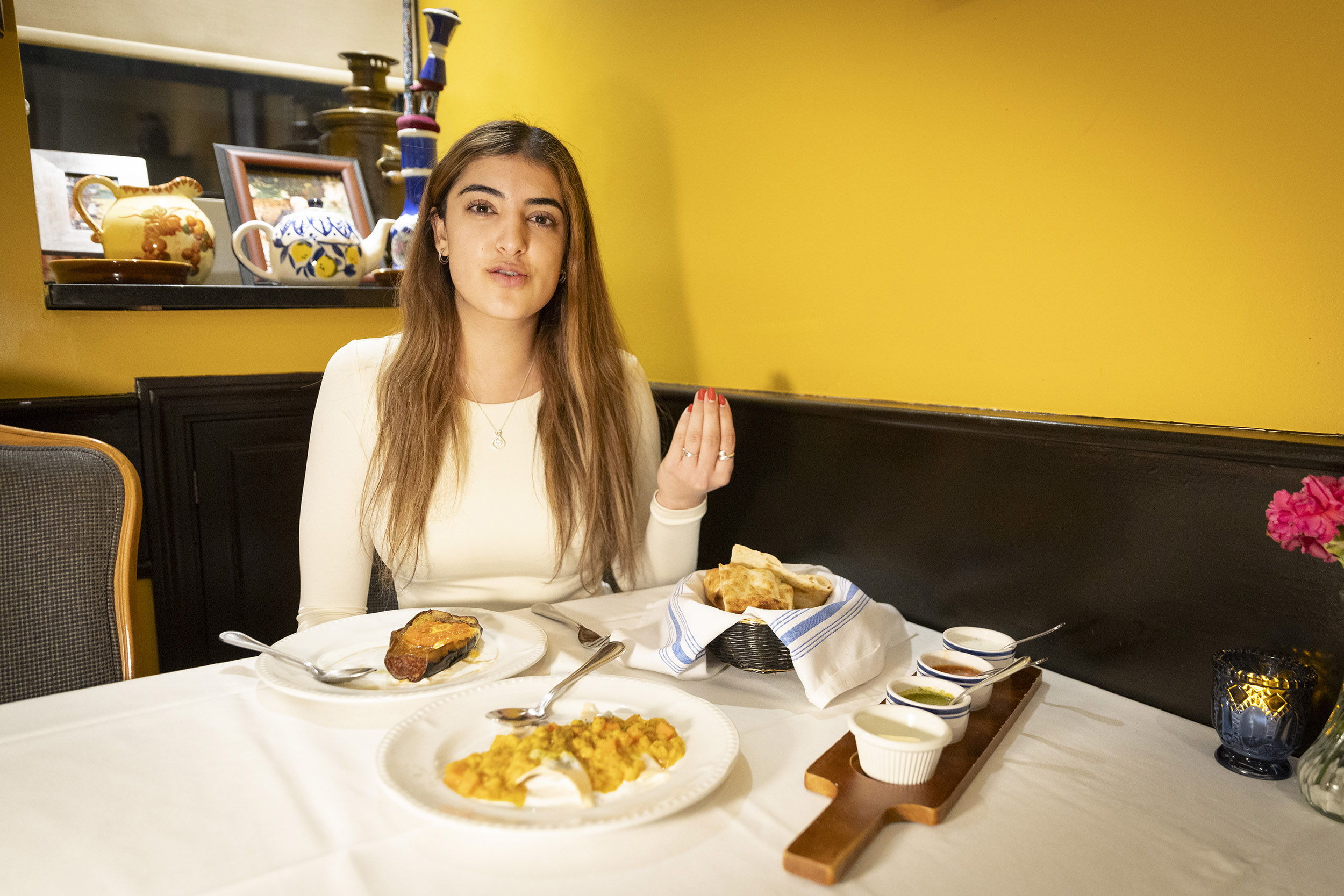
‘It gives me some cute little memories when I eat the dumplings’
Thamina Noorzai ’24 feels much the same about her own culture.
“If I think about the Afghan dishes that my mom makes, the best one is called banjan. It’s a specific way to prepare eggplants. I usually don’t like eggplant at all, but when my mom does it, then I could eat 10 plates and still eat more. Every time I fly home, that will be the meal that’s waiting for me.”
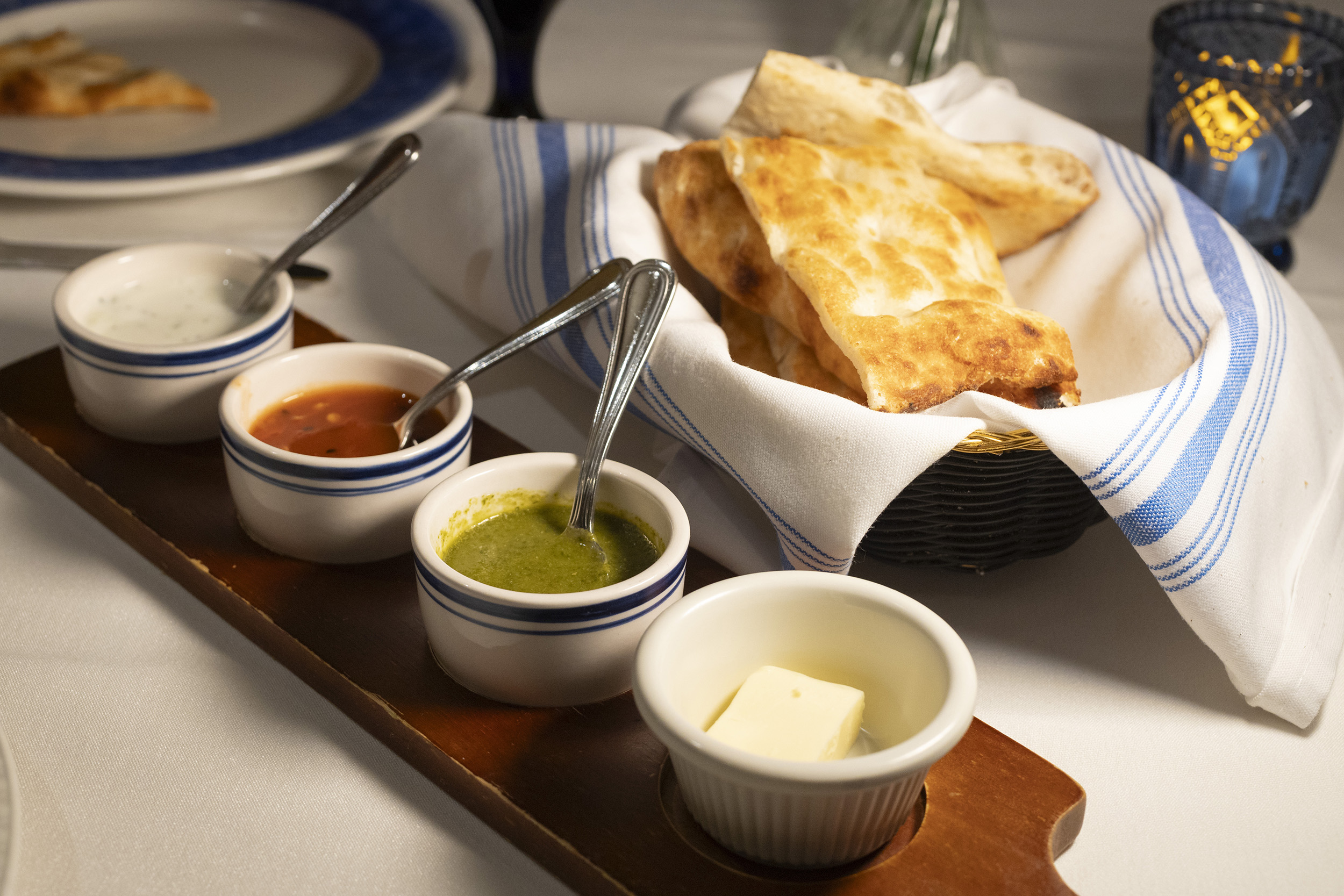
Noorzai is from Munich, but her mother is from Afghanistan, and she fondly remembers eating Afghan food every Sunday back home. Thousands of miles away from her mother’s cooking, the senior has found a small slice of Afghanistan at The Helmand in Cambridge. The banjan she likes to order typically takes two days to prepare, from airing out the eggplant to frying and then cooking it in a sauce. Although she is partial to her mother’s recipe, the Lowell House resident praises the Helmand’s banjan as well as its aushak, a dumpling filled with leeks and scallions.
“When I was very young, I remember on Sundays being in the kitchen with my mom and we would make them ourselves,” Noorzai said of the aushak. “She would roll out the dough, and I would cut it into pieces. Then [we would] put the little fillings in there, form the dumplings, and put it into a pot [to] steam it. It gives me some cute little memories when I eat the dumplings.”
Noorzai also brings friends to The Helmand when she wants to share her Afghan culture.
“A lot of things that people associate with Afghanistan are negative because of various issues going on. But there’s also great things about the country and I love showing that to my friends.”
She added: “I think it’s always cool to go into places with an open mind and not stick to what you know.”






